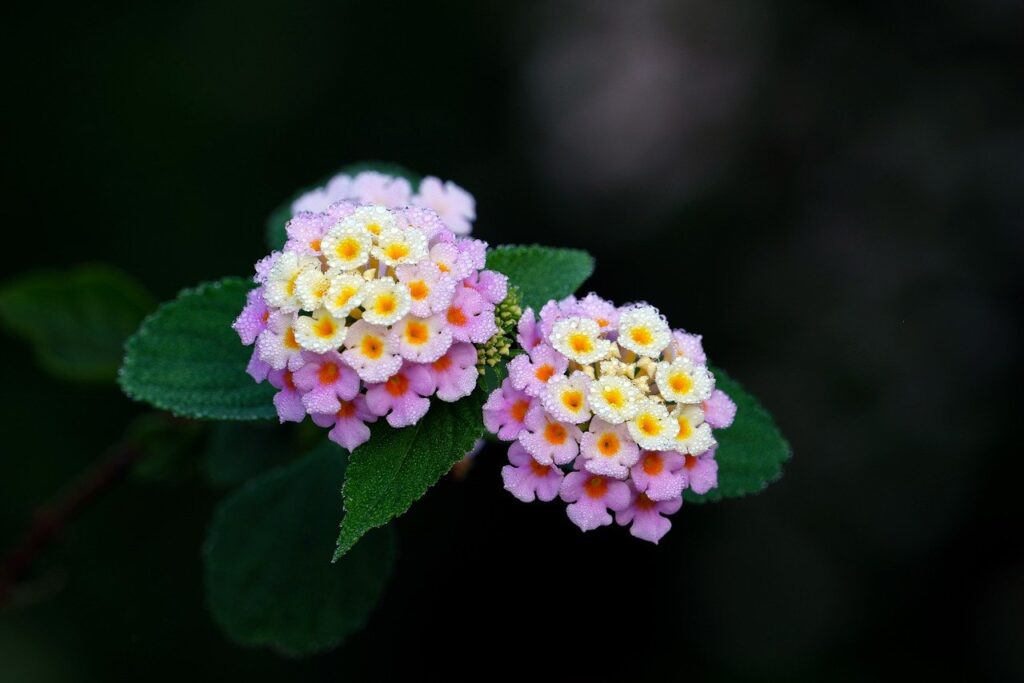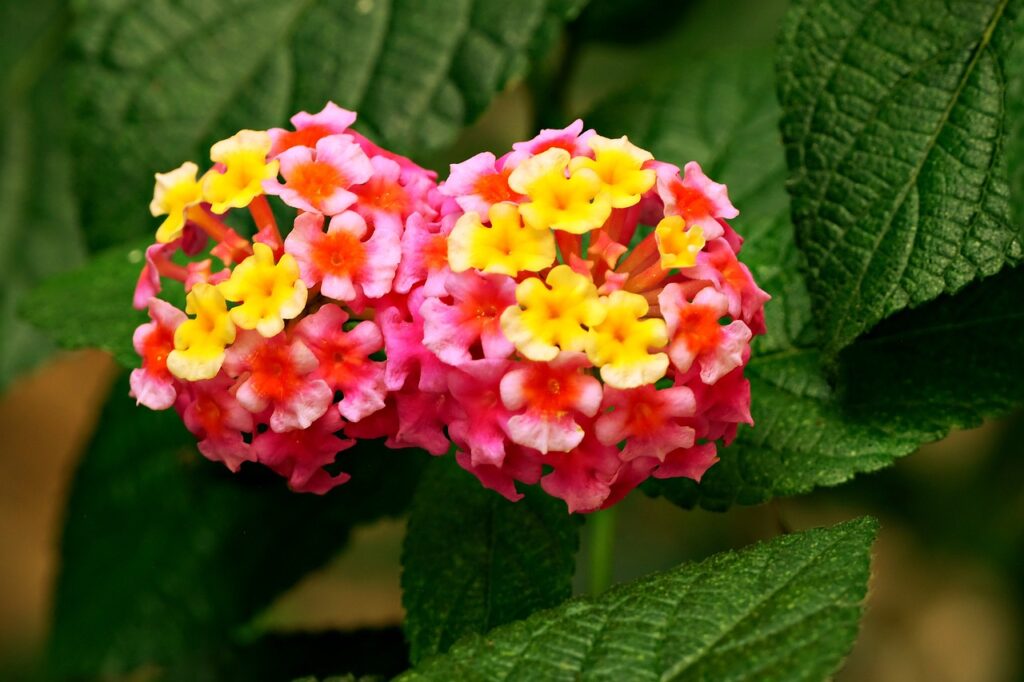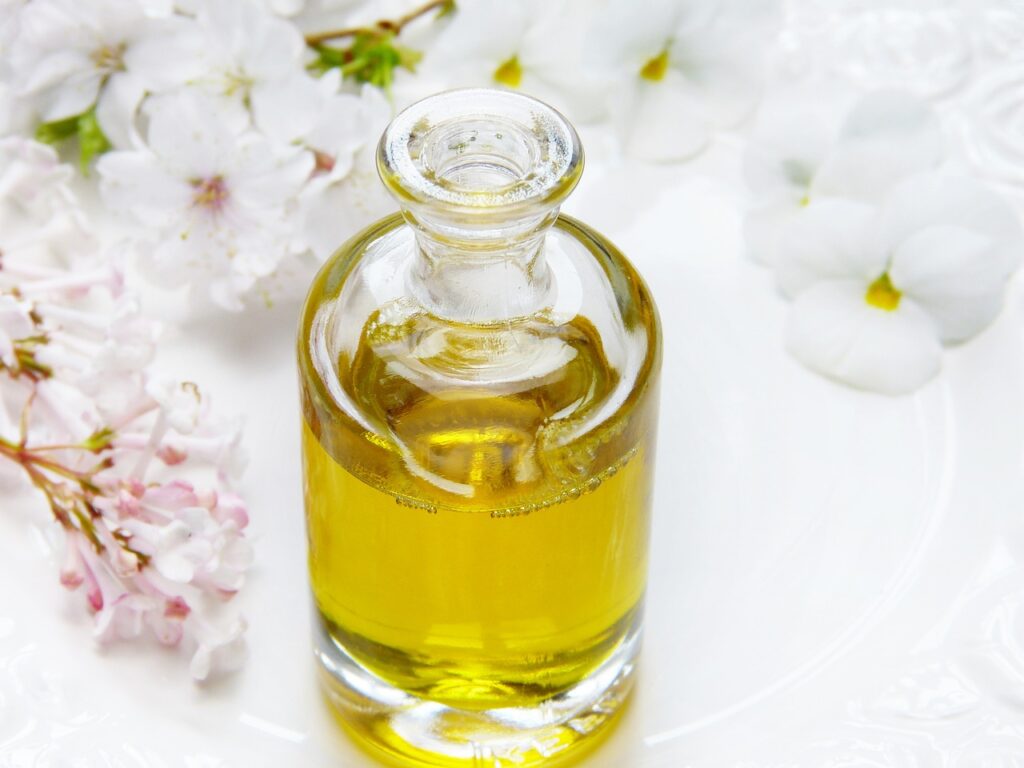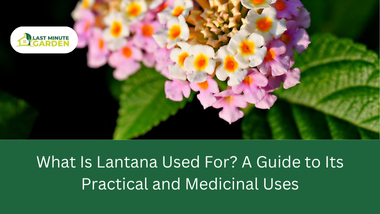What is Lantana used for? Lantana might be a vibrant, colorful plant that adds beauty to gardens, but did you know it has a lot more to offer than just an aesthetic appeal? This hardy plant is used for much more than just decorative purposes.
In this blog post, we’ll talk about the practical and medicinal uses and find out how this seemingly ordinary plant can work wonders in your life.
Understanding Lantana

Lantana belongs to the Verbenaceae family and is native to tropical regions of the Americas and Africa. With over 150 species, it is characterized by its clusters of small flowers that come in yellow, orange, pink, or purple.
Lantana is considered an invasive weed in most areas. It grows wildly and very visible on barren lands at low and medium altitudes and as climbers on walls or growing viciously in the gardens of homes. It seems to thrive wherever it is.
The plant is said to release a chemical called allelopathy into its surroundings that prevents the germination of native flora. It forms dense thickets and spreads quickly.
The plant is commonly used in landscaping due to its drought resistance and ability to attract pollinators like butterflies and bees.
What Is Lantana Used For?

The Lantana plant is considered an invasive weed. These shrubs grow wildly everywhere and they may as well be grow in your backyard! But the true benefit of this so-called weed is what everyone’s overlooking.
Let’s look at some of Lantana’s uses and benefits.
1. Good for landscaping
Lantana is highly valued for its ability to serve as ground cover in gardens. It thrives in various soil types, from sandy to loamy, and is particularly useful in areas with full sun.
As a ground cover, lantana helps prevent soil erosion by stabilizing the soil with its spreading roots. It also provides a natural barrier that suppresses weed growth, making it a low-maintenance addition to any garden.
2. Aids process of cross pollination
Lantana’s vibrant flowers attract a variety of pollinators, including bees, butterflies, and hummingbirds. The plant’s nectar-rich flowers provide sustenance for these essential creatures, contributing to a healthy ecosystem.
3. Natural Pest Repellent
Interestingly, lantana can also work as a natural pest repellent. It is known to repel certain insects, including mosquitoes.
The plant emits a strong fragrance that many pests find unpleasant, making it a great addition to any garden or outdoor space, especially in areas prone to mosquitoes and other insect pests.
4. Drought-Resistant and Heat-Tolerant
Lantana is incredibly drought-resistant and heat-tolerant, which makes it an ideal plant for regions with arid climates. Once established, lantana can survive with minimal water and still thrive in direct sunlight.
Medicinal uses of Lantana
Lantana has a long history of use in traditional medicine. From treating common ailments to addressing more serious health conditions, lantana is a plant that has found its way into natural healing practices in various parts of the world.
However, it’s essential to approach these uses with caution, as some parts of the plant can be toxic if ingested improperly.
1. Anti-inflammatory Properties
Lantana has been shown to possess anti-inflammatory properties, which can help in managing conditions like arthritis, swelling, and even skin irritation.
The leaves and flowers of the lantana plant are often used in traditional medicine to alleviate pain and reduce inflammation. In some cultures, a decoction made from lantana leaves is used as a remedy for sore muscles and joint pain.
2. Antimicrobial and Antifungal Effects
Another major benefit of lantana is its ability to fight off bacteria and fungi. Research has found that lantana extracts have antimicrobial and antifungal properties that make it effective in treating wounds, cuts, and skin infections. It’s often used to create topical ointments for minor skin irritations or fungal infections.
3. Digestive Health
Lantana has been used as a natural remedy to promote digestive health. In some regions, lantana leaves are boiled into tea and consumed to treat gastrointestinal issues such as bloating, indigestion, and stomach cramps.
The plant’s natural compounds may help to regulate digestion and provide relief from digestive discomfort.
4. Antioxidant Benefits
Packed with antioxidants, lantana may help combat free radicals in the body. These antioxidants help reduce oxidative stress, which is linked to various chronic diseases, including heart disease, cancer, and diabetes.
Consuming lantana or applying its extracts to the skin could help prevent skin aging and reduce the risk of these chronic conditions.
5. Blood Sugar Control
For those managing diabetes, lantana could be a natural ally. Some studies suggest that lantana may help regulate blood sugar levels.
The leaves, when consumed in controlled amounts, might have a positive effect on lowering blood glucose levels and improving overall sugar metabolism.
6. Fever Reduction
Lantana has also been traditionally used as a fever-reducing agent. The plant’s extracts are believed to have antipyretic properties, making it useful in treating mild fevers.
A decoction of the leaves can help lower body temperature and bring comfort during illnesses accompanied by fever.
7. A source of essential oil:
Lantana essential oil is extracted from the leaves through steam distillation method. The extract has a pale yellow colour and its aroma exhibits woody undertone and scent like that of basil.
The processed and tested lantana essential oil is used externally for treating skin irritation and scabies.
Using Lantana Essential Oil at Home

- Essential oil extract from the lantana plant has a floral-woody fragrance and can be mixed with water and sprayed to refresh a room.
- You can use it as a diffuser blend. Add a few drops of the essential oil to your liquid detergent, and wash your sweaters or flannel shirts with it for a blissful scent of woodiness.
- Use it as a freshener while you clean your home. This is simple – add a few drops of the essential oil in each new bag you put in your vacuum. If your vacuum has a washable filter then you can add a few drops in the filter. As you vacuum your house, it will smell amazing!
- You can add it with disinfectants or water used for mopping to make your home smell fresh and natural.
Summary
Lantana serves multiple purposes beyond its ornamental beauty. From enhancing garden aesthetics to offering potential health benefits through traditional remedies, this resilient plant is indeed versatile.
However, caution is necessary when exploring its medicinal and culinary uses due to the risk of toxicity in certain species.
As interest in herbal remedies continues to grow, understanding the safe applications of plants like lantana becomes increasingly important for both gardeners and health enthusiasts.





